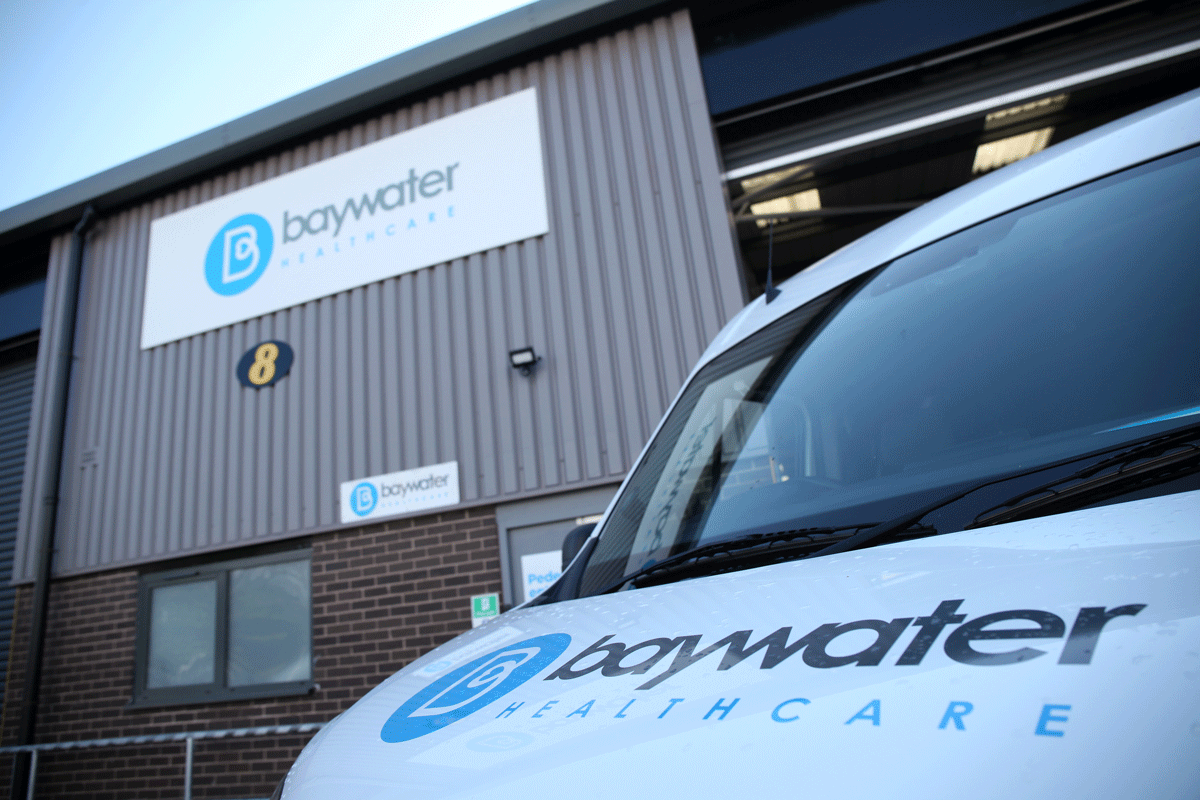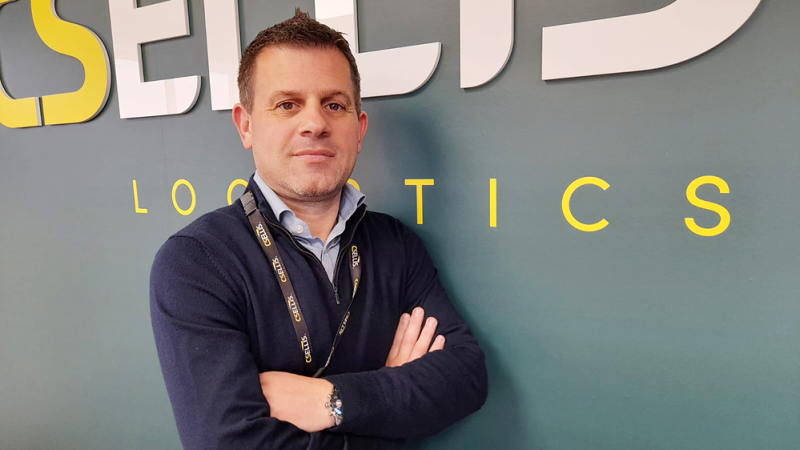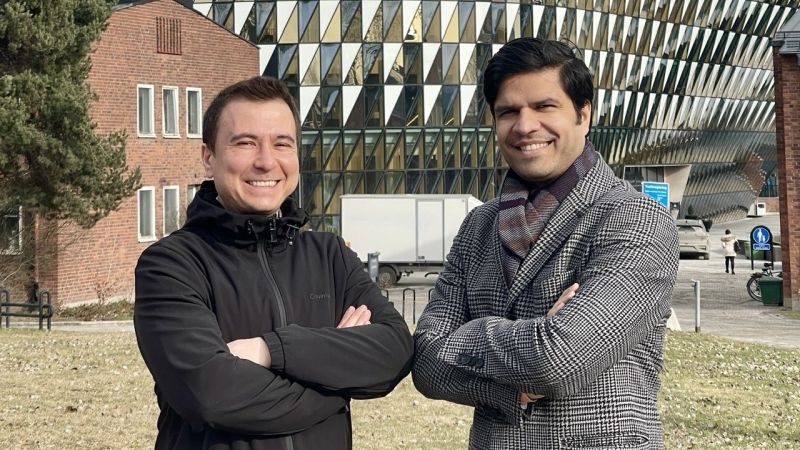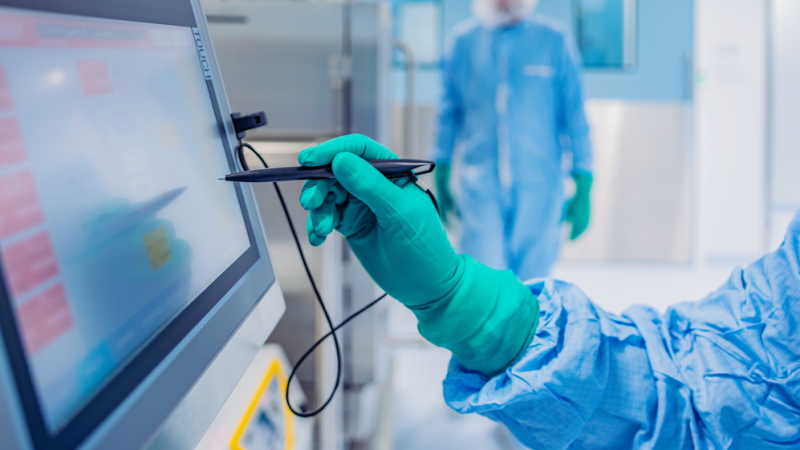Baywater Healthcare was founded ten years ago, in 2013, through a private equity-backed management buyout of the healthcare division of an American industrial company. From there, the company was sold to French healthcare organisation the Bastide Group in 2018, the medical group’s largest acquisition to date. Today the firm is a sizeable European organisation on a path to global expansion, a listed business, but with the majority of its shareholding held by the company’s founder and his family.
Over time, the company has established itself as the largest supplier of respiratory homecare services in the UK, with a foundation of providing the Home Oxygen Service on behalf of the NHS across different regions of England and Wales.
“We are supplying patients who require supplementary oxygen therapy for respiratory conditions,” says Adam Sullivan, CEO of Baywater Healthcare.
Baywater has managed to establish itself as a leading competitor in its industry by emphasising the “Healthcare” in “Healthcare Business.”
“A lot of companies in our sector, their business spins off being industrial oxygen manufacturers,” Sullivan points out. “We are solely focused on healthcare. There is nothing in our corporate background centred around an industrial process or the need to focus on how many molecules of oxygen aresold. It is all about the service and interaction with patients, commissioners, and clinicians.”
Baywater Healthcare’s ownership structure means that it enjoys complete autonomy to pursue a strategy of healthcare innovation, and diversify within that field.
The company has used that autonomy to develop products and services to support patients in long-term care.
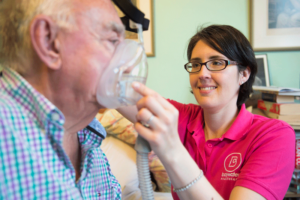 Long-Term Care Partners
Long-Term Care Partners
Patients can be under Baywater’s care for periods stretching from a few days to many years, to palliative care to look after patients at home during their final days and hours.
“Patients have a wide range of healthcare needs. We help premature babies born with lungs that are not yet fully developed all the way through to centenarians. The average age of our patients is probably mid-sixties, and we are caring for them for an average of three years,” Sullivan explains.
That care can take many different forms, using many different setups and delivery methods.
“We offer an oxygen concentrator for static use overnight while sleeping,” Sullivan explains. “It draws in the surrounding ambient air through a molecular sieve and produces 95% pure oxygen. We also offer a small battery-powered concentrator for more mobile patients, but they usually use a small portable oxygen cylinder, which we supply. Some have oxygen in liquid form in a specialised thermos flask at very cold temperatures, -190 degrees, and they can draw that off for use when they are mobile.”
Whatever methods Baywater deploys, the standard of care is non-negotiable. The company employs 400 staff, half of which are healthcare technicians working out of regional stocking centres and transport vans for seven days a week, 24 hours a day.
“If you have a chronic condition, you can’t decide as and when you need it,” Sullivan points out. “We have high service expectations. Every job is on a next-day basis, with the requirement to provide four-hour emergency support for patients coming out of hospital.”
Treatment in Hospital and at Home
When a prescriber gives Baywater a prescription, Baywater makes sure to have it ready on a timely basis for patients as they leave the hospital. Often, it is Baywater’s products and support that allow patients to leave hospital and recover or receive treatment at home.
And now, Baywater is looking to serve a broader selection of needs.
“We have moved into some broader healthcare services that complement our knowledge and infrastructure,” Sullivan says.
This includes diagnostic and support services for patients who suffer from obstructive sleep apnoea, a severely underdiagnosed disorder.
“It mainly affects middle-aged people. The softening of the tissue in the back of the throat blocks the airway, a big symptom is snoring,” Sullivan says. “The symptoms are fatigue and snoring, but it can lead to cardiovascular disease and increased risk of stroke.”
Treatment comes in the form of a device called a CPAP machine, or “Continuous Positive Airways Pressure,” that blows air down a mask to keep the airways open. Baywater also provides services to several hospital trusts in the UK to support patients with chronic lung conditions who need home mechanical ventilation.
Baywater has also moved into offering more clinically trained services, including diagnostic and support functions on behalf of the NHS across the UK.
“We are assessing patients when they first present with a long-term condition. We also offer remote patient monitoring for patients with a known health condition,” Sullivan says. “When patients are discharged back into their homes, we can provide technology that enables the clinical team to continue to monitor their condition.”
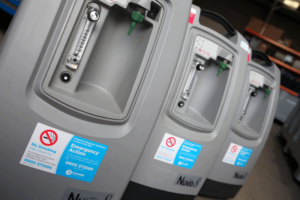 Adapting to the Pandemic Age
Adapting to the Pandemic Age
Demand for these remote monitoring services has rocketed over the last few years in response to the Covid pandemic.
“During the pandemic, many people were presenting at hospital with severe Covid, and the hospitals didn’t have the capacity to cope,” Sullivan recalls. “Overnight, we introduced an application for monitoring Covid patients. It allowed clinicians to triage patients. Depending on severity they would be admitted to the hospital ward with a finite number of beds or sent back home but be monitored there.”
Baywater Healthcare supplied software that could be uploaded to a patient’s mobile device to work with an oxygen monitor and take readings every day, alongside a questionnaire to track the patient’s wellbeing. It allowed clinicians to monitor patients and bring them into the hospital if they deteriorated.
“It came up pretty much overnight, when the NHS was in turmoil,” Sullivan recalls. “They came to us because we had supplied a patient monitoring solution, asking ‘Can you do anything to help us?’ The fact we were able to work so swiftly and collaboratively with both our technology partners and the team in the Trust is a great example of what we are capable of.”
For many the pandemic seems like ancient history now, although working in respiratory healthcare means Sullivan is more aware than most that Covid is still with us. However, he is also looking to the future of a changing healthcare sector.
“We are in the earlier phases of some very long-term contracts, and we are looking at diversification around clinical services,” he tells us. “We are considering new therapies, how to support virtual wards, which are becoming more and more key to how the NHS operates. Patients, through choice, do not necessarily want to see a GP or consultant if they can do things virtually, and it is lower cost and adds value while helping with recruitment challenges as well.”
Baywater Healthcare is operating in a rapidly evolving sector, it is also one that makes a huge difference to people’s lives, as Sullivan himself has seen after coming to the firm from a background in the b2b corporate industrial sector.
“I felt my job was worthwhile, then I came to Baywater and did this job for one week and came home to my wife and said, ‘I’ve now realised the job I’ve been doing the last seven days is truly worthwhile.”
It is not just that without Baywater’s support patients would suffer, but that with their products and services, people’s lives can be hugely enhanced.
“People learn they are dependent on oxygen and think it will be massively restrictive,” Sullivan says. “Our job is to make sure that isn’t the case.”
